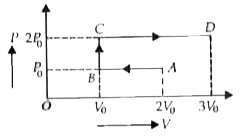(figure). Shows the diagram of an ideal gas undergoing a change of state from A to B. Four different process I, II, III, IV, as shown in (figure) may lead to the same change of state.
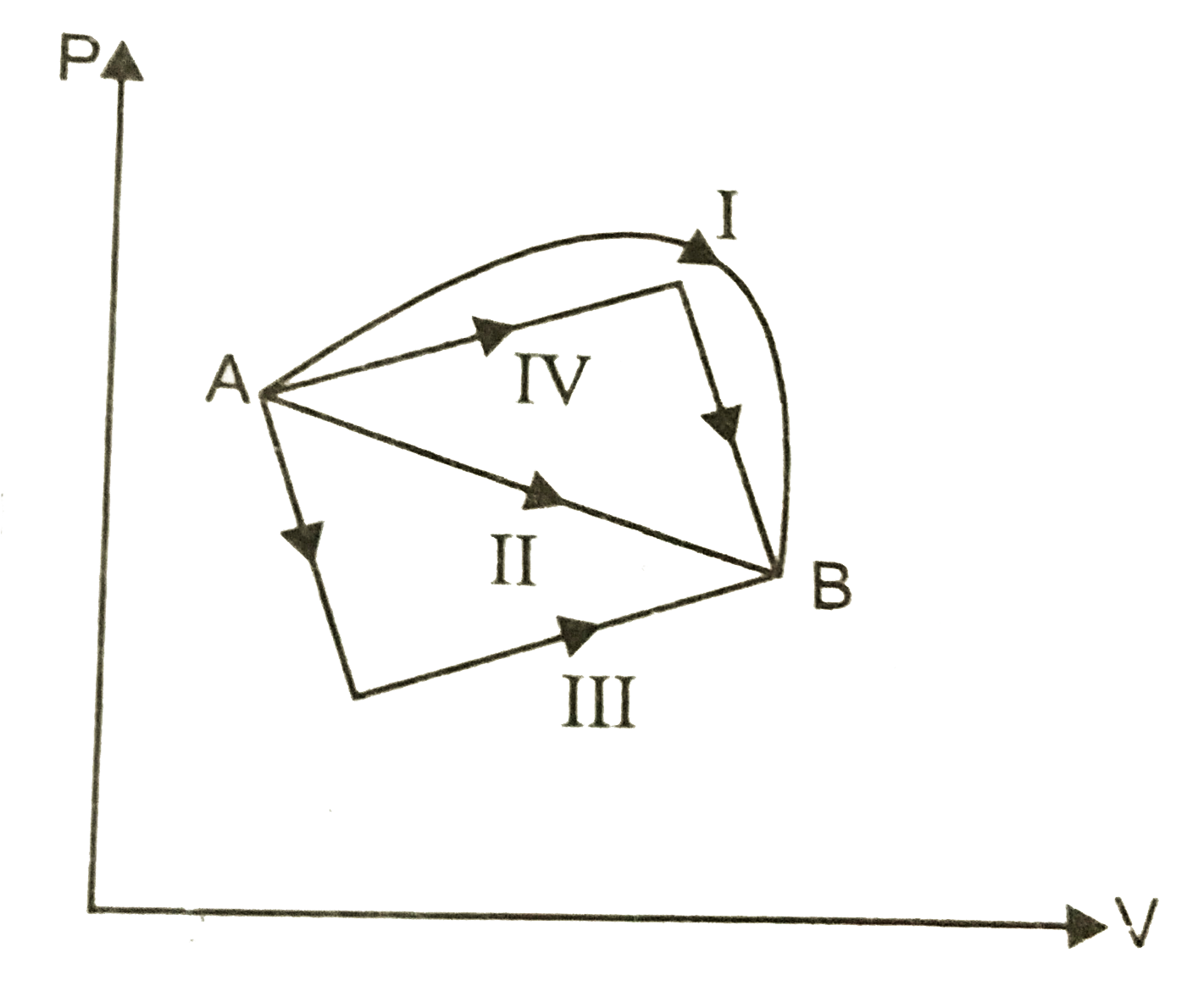
Change in internal energy is same in IV and III cases, but not in I and II.
Change in internal energy is ame in all the four cases.
Work done is maximum in case I
Work done is minimum in case II
The correct Answer is:B, C
Change in internal energy for the process A to B
Which depends only on temperatures at A and B. Work done for A to B , Area under p-V curve which is maximum for the path I.
Topper's Solved these Questions
- BOOK - NARAYNACHAPTER - KINETIC THEORY OF GASESEXERCISE - LEVEL-V10videos
KINETIC THEORY OF GASES
- BOOK - NARAYNACHAPTER - KINETIC THEORY OF GASESEXERCISE - LEVEL-VI10videos
KINETIC THEORY OF GASES
- BOOK - NARAYNACHAPTER - KINETIC THEORY OF GASESEXERCISE - LEVEL-3(C.W)13videos
KINETIC THEORY OF GASES
- BOOK - NARAYNACHAPTER - GRAVITATIONEXERCISE - EXERCISE -IV40videos
GRAVITATION
- BOOK - NARAYNACHAPTER - LAW OF MOTIONEXERCISE - EXERCISE - IV35videos
LAW OF MOTION
Similar Questions
Knowledge Check
- Question 1 - Select One or More
(figure). Shows the P−V diagram of an ideal gas undergoing a change of state from A to B. Four different process I, II, III, IV, as shown in (figure) may lead to the same change of state.
 AChange in internal energy is same in IV and III cases but not in I and IIBChange in internal energy is same in all the four casesCWork done is maximum is Case IDWork done is minimum in case II
AChange in internal energy is same in IV and III cases but not in I and IIBChange in internal energy is same in all the four casesCWork done is maximum is Case IDWork done is minimum in case II - Question 2 - Select One or More
Figure shows the p−V diagram of an ideal gas undergoing a change of state from A to B. Four different parts I, II, III and IV as shown in the figure may lead to the same change of state. ltBrgt
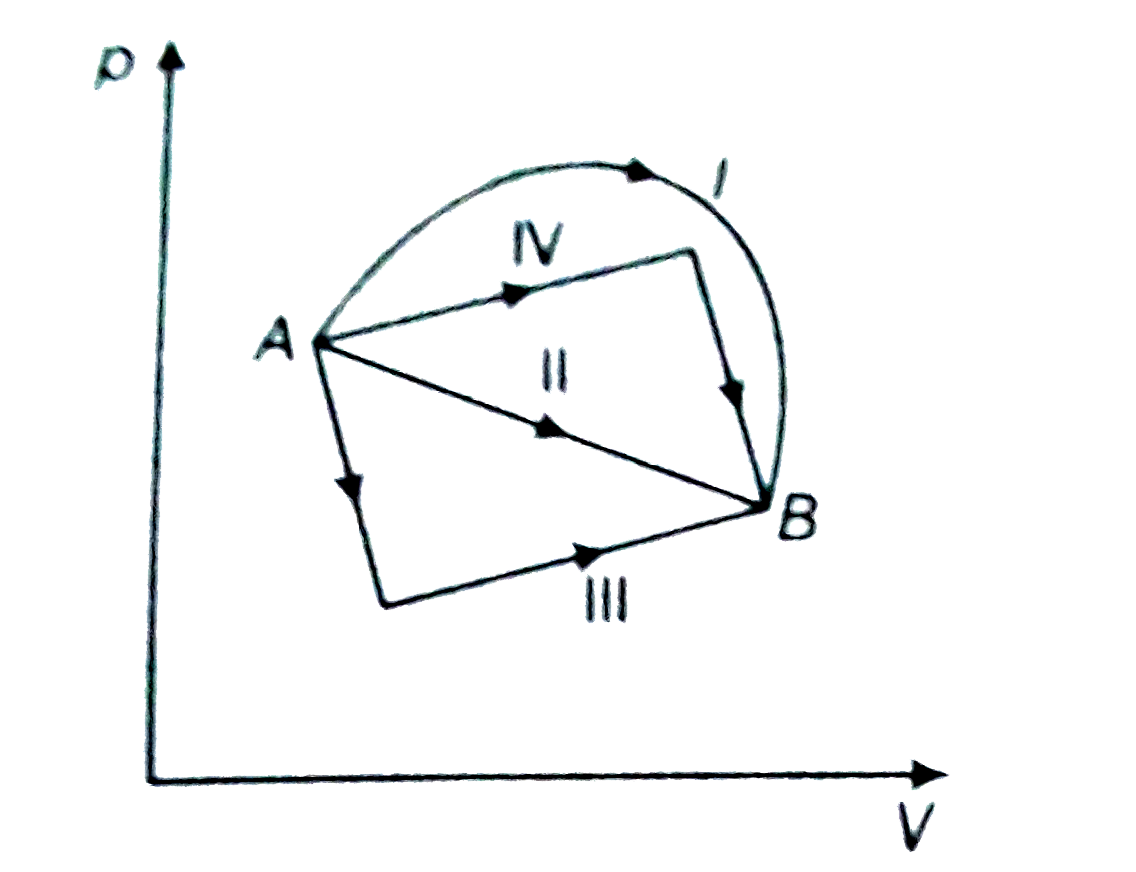 AChange in internal energy is same in IV and III cases, but not in I and IIBChange in internal energy is same in all the four casesCWork done is maximum in case IDWork done in minimum in case II
AChange in internal energy is same in IV and III cases, but not in I and IIBChange in internal energy is same in all the four casesCWork done is maximum in case IDWork done in minimum in case II - Question 3 - Select One
The given P - V diagram is showing an ideal gas undergoing a change of state different paths I, II, III and IV that lead to the same change of state, then change in internal energy is
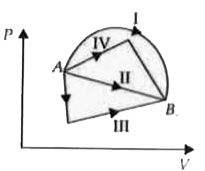 Amaximum along path 1Bmaximum and same along paths III and IVCminimum along path IIDsame in all the four cases
Amaximum along path 1Bmaximum and same along paths III and IVCminimum along path IIDsame in all the four cases
P−V diagram of an ideal gas is as shown in figure. Work done by the gas in process ABCD is
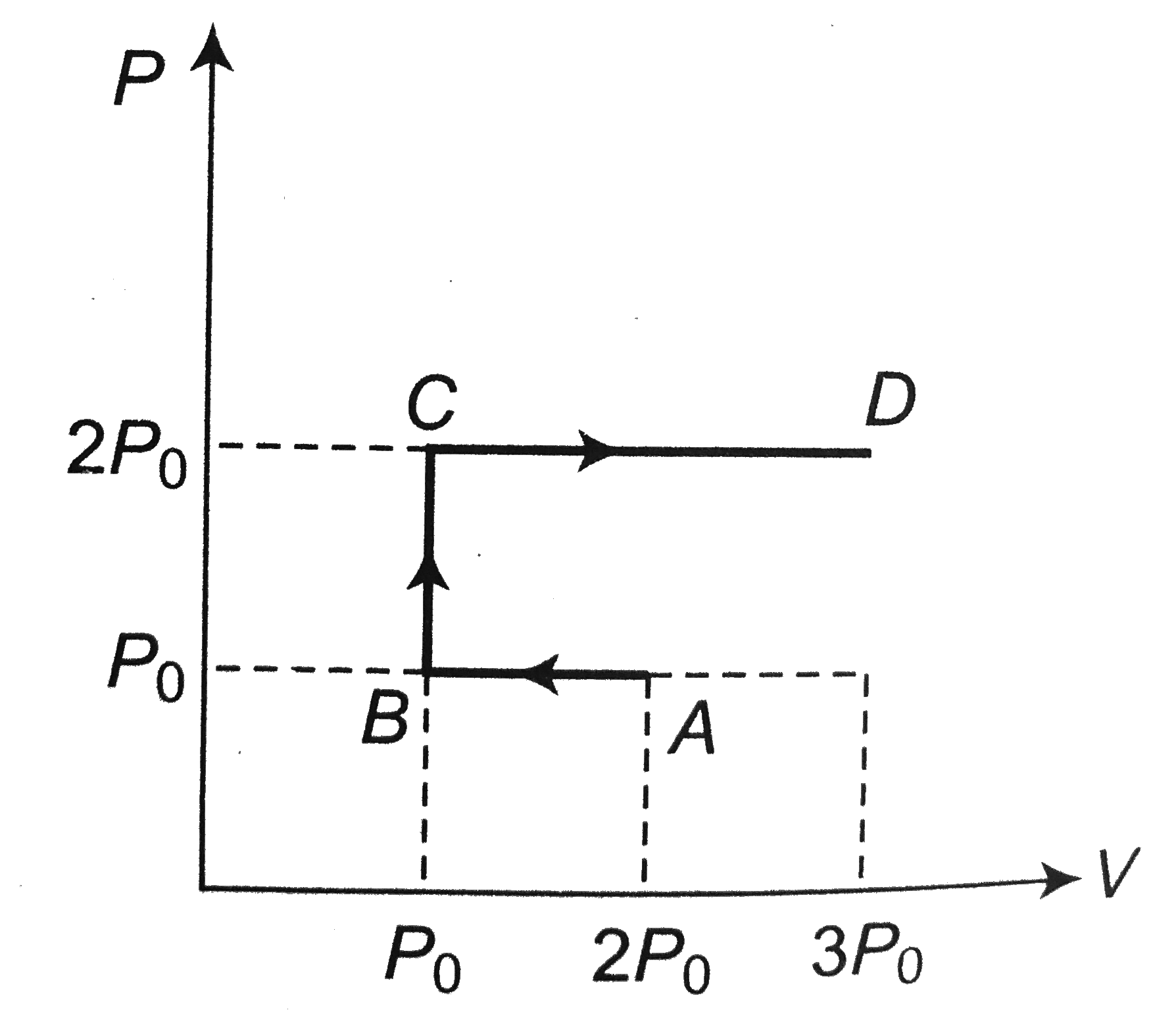 View Solution
View SolutionA gas undergoes change in its state from position A to position B via three different path as shown in Fig. Select the correct alternatives :
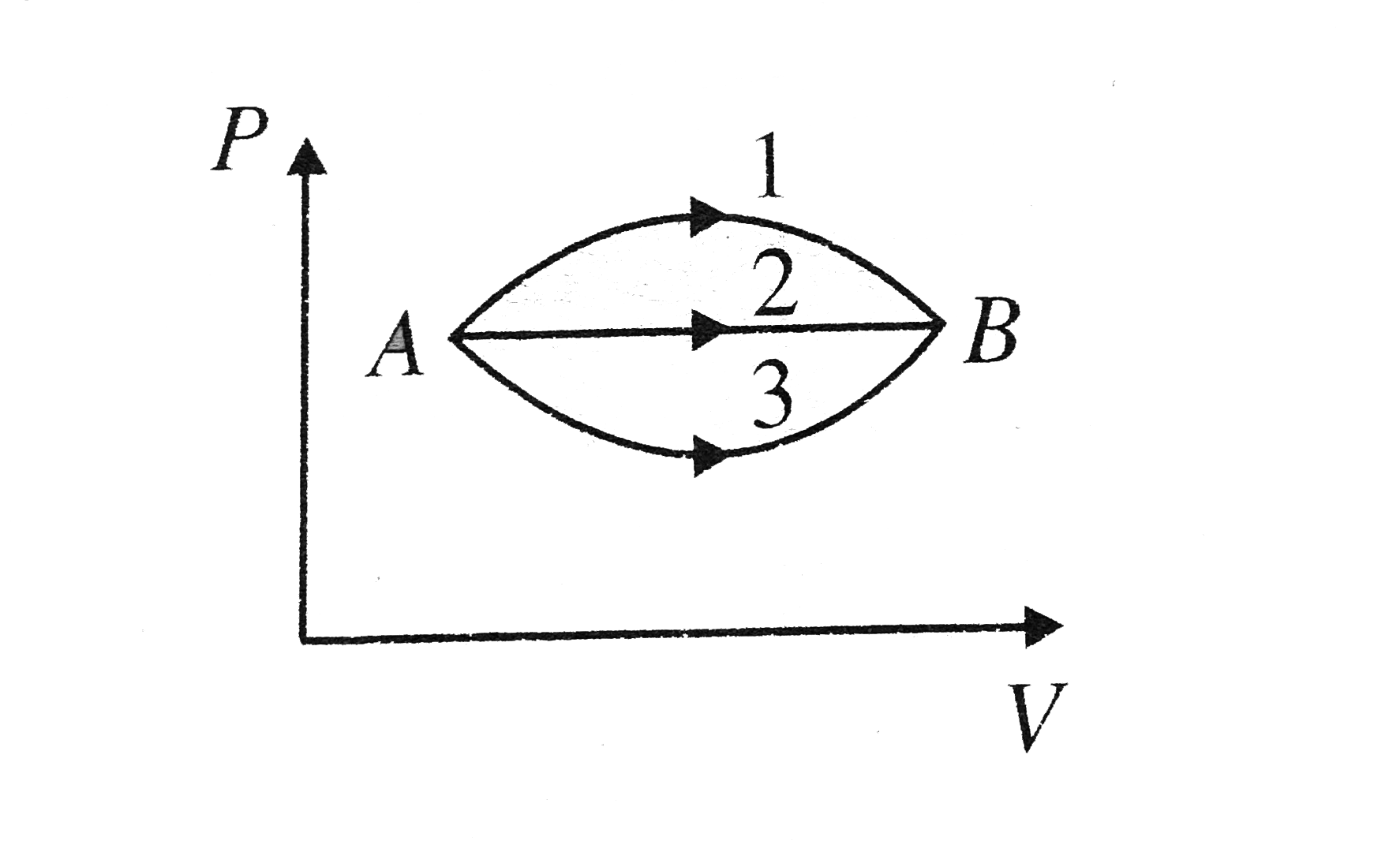 View Solution
View SolutionOne mole of an ideal gas undergoes change of state from (4 L, 3 atm) to (6 L, 5 atm). If the change in internal energy is 45 L-atm then the change of enthalpy for the process is
View SolutionP−V diagram of an ideal gas is as shown in figure. Work done by the gas in process ABCD is
 View Solution
View SolutionOne mole of an ideal gas is taken from state A to state B by three different processes (a) ACB, (b) ADB and (c ) AEB as shown in the P−V diagram. The heat absorbed by the gas is
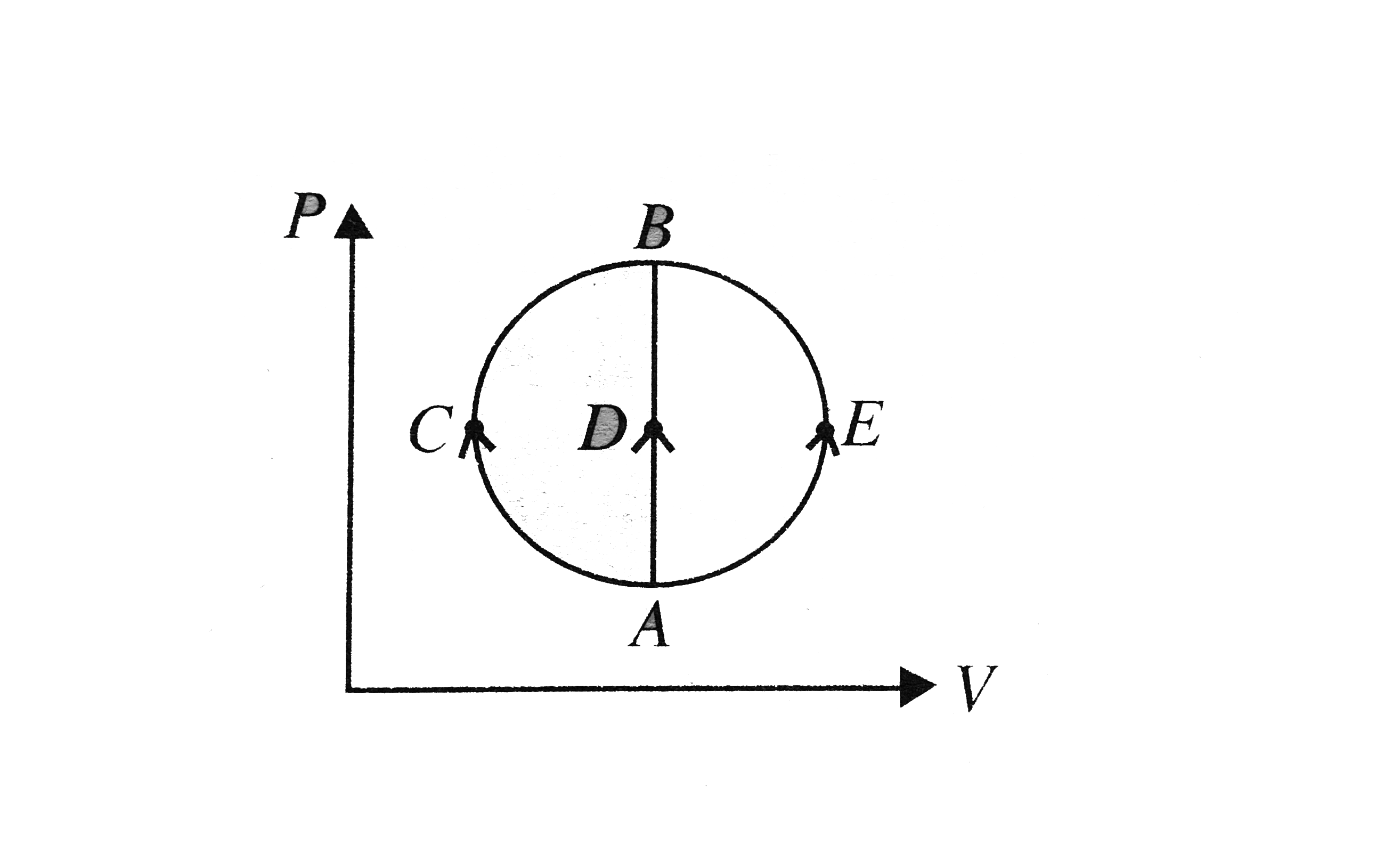 View Solution
View Solution

